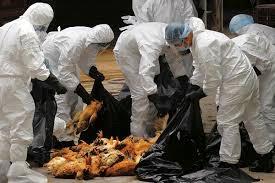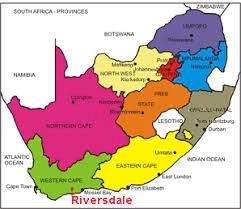 In mid-April, the Department of Agriculture, Land Reform and Rural Development, of the Republic of South Africa, confirmed an outbreak of highly pathogenic H5N1 strain avian influenza on a commercial egg production unit. The farm holding approximately 270,000 hens was depleted and carcasses were disposed of by burial on April 19th. It is noted that the index egg-production farm was depleted in 2017 following a diagnosis of H5N8 HPAI. Within the Republic of South Africa, egg production farms are vulnerable to infection since spent hens are invariably sold directly from multiage sites to itinerant dealers representing a high risk of transmission of vial and bacterial diseases.
In mid-April, the Department of Agriculture, Land Reform and Rural Development, of the Republic of South Africa, confirmed an outbreak of highly pathogenic H5N1 strain avian influenza on a commercial egg production unit. The farm holding approximately 270,000 hens was depleted and carcasses were disposed of by burial on April 19th. It is noted that the index egg-production farm was depleted in 2017 following a diagnosis of H5N8 HPAI. Within the Republic of South Africa, egg production farms are vulnerable to infection since spent hens are invariably sold directly from multiage sites to itinerant dealers representing a high risk of transmission of vial and bacterial diseases.
Approximately one week after the index case, two additional commercial chicken flocks in Gauteng Province were diagnosed with HPAI. A third farm was diagnosed in the Northwest Province a few hundred miles from the initial focus. The authorities have not disclosed the types of farms or flock sizes affected in the most recent outbreaks.
 On May 6th and 7th, outbreaks were recorded in the Western Cape Province involving a broiler breeder farm presumably associated with the nation's largest producer on a complex producing in excess of one million broilers per week. An outbreak was recently reported in the high-density broiler-producing area of Randfontein in Gauteng Province.
On May 6th and 7th, outbreaks were recorded in the Western Cape Province involving a broiler breeder farm presumably associated with the nation's largest producer on a complex producing in excess of one million broilers per week. An outbreak was recently reported in the high-density broiler-producing area of Randfontein in Gauteng Province.
The outbreaks have resulted in embargoes on export of all live chickens and products to neighboring nations. In 2020, 55,224 tons were exported with the bulk to landlocked Lesotho and Eswatini (previously Swaziland).
Simultaneous outbreaks in widely distant areas of the nation suggest dissemination by a combination of migratory birds and defects in biosecurity on affected farms. Given the resources of the Department of Agriculture at the national and state levels, control will be difficult, and it is doubtful whether the infection will be eradicated. Given a history of recurring outbreaks and logistical and financial barriers to control vaccination would appear to be a practical and logical strategy.